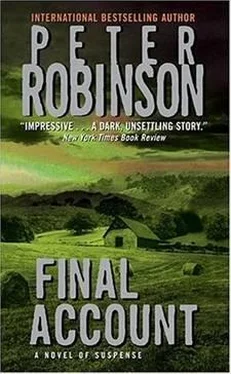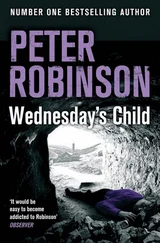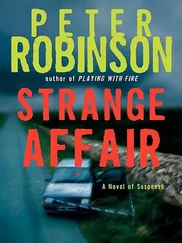“I am today.”
Drake held his hands out, palms open. “Well, I’ve done nowt to be ashamed of.”
“Jack, old lad,” said Hatchley heavily, “you ought to be ashamed of being born, but we’ll leave that aside for now. Girlie magazines.”
“Eh? What about ’em?”
“Still in business?”
Drake shifted from one foot to the other and cast a beady eye on Susan, guilty as the day is long. “You know I don’t go in for owt illegal, Jim.”
“Believe it or not, at the moment I couldn’t care less. It’s not you I’m after. And it’s Sergeant Hatchley to you.”
“Sorry. What’s up, then?”
Hatchley asked him about the masked killer with the puppy-dog eyes. Drake was shaking his head before he had finished.
“Sure?” Hatchley asked.
“Aye. Swear on my mother’s grave.”
Hatchley laughed. “You’d swear night was day on your mother’s grave if you thought it would get me off your back, wouldn’t you, Jack? Nonetheless, I’ll believe you, this time. Any ideas where we might try?”
“What have you got?”
“Shaved pussies, excited penises. Right up your alley, I’d’ve thought.”
Drake turned up his misshapen nose in disgust. “Shaved pussies? Why, that’s pretty much straight stuff. Nay, Jim, times have changed. They’re all into the arse-bandit stuff or whips and chains these days.”
“I’m not just talking about the local MPs, Jack.”
“Ha-ha. Very funny. Even so.”
Hatchley sighed. “Benny still in business?”
Drake nodded. “Far as I know. But he deals mostly in body-piercing now. Very specialized taste.” He looked at Susan. “You know, love – pierced nipples, labia, foreskins, that kind of thing.”
Susan repressed a shudder.
“Bert Oldham?” Hatchley went on. “Mario Nelson? Henry Talbot?”
“Aye. But you can practically sell the stuff over the counter, these days, Ji – Sergeant.”
“It’s the ‘practically’ that interests me, Jack. You know what the law says: no penetration, no oral sex, and no hard-ons. Anyway, if you get a whiff of him, phone this number.” He handed Drake a card.
“I’ll do that,” said Drake, dropping back into his chair again. Susan thought the legs would break, but, miraculously, they held.
The girl didn’t look up from her magazine as they went out. “Better give that reading a rest, love,” said Hatchley. “It must be hell on your lips.”
“Fuck off,” she said, chewing gum at the same time.
Shit, thought Susan, it’s going to be one of those days.
Banks was right, he saw, as he stood on the threshold of Robert Calvert’s flat and surveyed the wreckage. The only difference between this and Pamela Jeffreys’s flat was that there had been no human being hurt and no prized possessions utterly destroyed. Stuffing from the sofa lay strewn over the carpet, which had been partly rolled up to expose the bare floorboards. In places, wallpaper had been ripped down, and the television screen had been shattered.
So they had come back. It supported his theory. They obviously didn’t know that Banks was a policeman, didn’t know that Calvert’s flat had already been thoroughly searched by professionals. If they had known, they would never have come here.
It was as he had suspected. They had started following him when he left Clegg’s Park Square office on Monday morning. They must have seen the police arrive first, but from their point of view, the police arrived sometime after Banks, and he left alone, so there was no reason to make a connection, certainly none to suspect that he was a policeman. For all they knew, he could have been a friend of Betty Moorhead’s, or a colleague of Clegg’s.
Still looking for clues to Clegg’s whereabouts, they had trailed Banks on his lunch date with Pamela and noted where she was rehearsing. One of them must have found out where she lived. They didn’t know about the Calvert flat until Banks led them there, and they must have thought the place had something to do with Clegg. Finally, when Banks saw them from the window, they ran off, only to come back later and search the place when the coast was clear.
Where were they now? Already, their descriptions had been sent to other police forces, to the airports and ports. If the men had any sense, they would lie low for a while before trying to leave the country. But criminals don’t always have sense, Banks knew. In fact, more often than not, they were plain stupid.
And what about Rothwell’s killers? If the man Melissa Clegg remembered was involved – and it was a big if – then he was local. Was he the kind to stay put or run? And what about his partner?
No one else was at home in the building, and there was no point looking over the rest of the flat. From the box at the corner of the street, Banks went through the motions of calling the local police to report the break-in, but he knew there was nothing they could do. He had no doubts as to who had done it; he just had to find them. Dirty Dick Burgess knew something, Banks believed, but he would talk only when he wanted and tell only as little as he needed.
When Banks had finished the call, he took a bus to Millgarth at the bottom of Eastgate. Over the road, on the site of the demolished Quarry Hill flats, stood the new West Yorkshire Playhouse with its “City of Drama ” sign. It seemed uncannily appropriate, Banks thought, given the events of the past couple of days. Beyond the theater, high on a hill, was Quarry House, new home of the Department of Health and Social Security, and already nicknamed “The Kremlin” by locals.
Ken Blackstone was in his office bent over a stack of paperwork. He pushed the pile aside and gestured for Banks to sit opposite him.
“No earth-shattering developments to report, before you get your hopes up,” he said. “We’re still no closer to finding Clegg or Rothwell’s killers, but there’s a couple of interesting points. First off, you might like to know that the lab boys say the dirt and gravel on the tires of Ronald Hamilton’s Escort match that around Arkbeck Farm. They said a lot of other things about phosphates and sulphides or whatever, which I didn’t understand, but it looks like the car the killers used. Rest of it was clean as a whistle. And airport security at Heathrow have found Clegg’s red Jag in the long-stay car park.”
“Surprise, surprise,” said Banks.
“Indeed. Coffee?”
Bank’s stomach was already grumbling from too much caffeine, so he declined. Blackstone went and poured himself a mug from a machine in the open-plan office and returned to his screened-off corner. There was a buzz of constant noise around them – telephones, computer printers, fax machines, doors opening and closing, and the general banter of a section CID department – but Blackstone seemed to have carved himself a small corner of reasonably quiet calm.
Banks told him about Calvert’s flat.
“Interesting,” said Blackstone. “When do you think that happened?”
“I’d say before they went to Pamela’s,” Banks said. “Finding nothing there would put them in a fine mood for hurting someone. Is there any news from the hospital?”
Blackstone shook his head. “No change. She’s stable, at least.” He frowned at Banks and touched the side of his own cheek. “What about you? And I noticed you limping a bit when you came in.”
“Slipped in the shower. Look, Ken, I might have a lead on one of Rothwell’s killers.” He went on quickly to tell Blackstone what Melissa Clegg had said about the mysterious client with the puppy-dog eyes that Clegg had passed on to Harvey Atkins.
Blackstone put the tip of a yellow pencil to his lower lip. “Hmm… ” he said. “We’re already running a check on all Clegg’s contacts and clients. We can certainly check the court records. At least we’ve got the brief’s name, which helps a bit. Harvey Atkins is certainly no stranger around here. He’s not a bad bloke, as lawyers go. It’s a bit vague, though, isn’t it? About two years ago, she says, something to do with assault, maybe? Do we know if the bloke was convicted?”
Читать дальше












